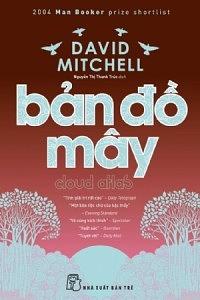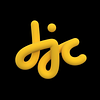You need to sign in or sign up before continuing.
Take a photo of a barcode or cover
adventurous
challenging
dark
emotional
mysterious
reflective
tense
medium-paced
Plot or Character Driven:
Character
Strong character development:
Yes
Loveable characters:
Complicated
Diverse cast of characters:
Yes
Flaws of characters a main focus:
Yes
Wow. The writing is effervescent and I love love loved the structure. I’m docking points for borderline unintelligible language that I do not have the propensity to understand currently, and because I never quite figured out the overarching plot. It may have been because of several skipped pages and spark notes.
adventurous
mysterious
slow-paced
Plot or Character Driven:
Plot
challenging
mysterious
reflective
medium-paced
Oh man, if I'd even wanted to give this 4 stars I couldn't have done; the sheer amount of effort poured into each chapter (the different language styles, and the unique meanings for words depending on the era depicted) practically blew me away.
The only cons I can think of are as follows:
- If I hadn't pushed myself, it would have taken an age to read, simply due to the complexly rich detail of every paragraph. I am one of those readers who can't progress until I've attempted to absorb every facsimile of information, so hugely detailed books like this are pretty much a pleasantly challenging nightmare for readers like myself. Of course, this is really a personal con, and not one pertaining to the book so much; this point serves more as a warning to readers with similar reading styles to not expect a quick one-day read.
- The birthmark thing was a bit...well, unexplained. I Googled it afterwards and even an explanation by David Mitchell himself seemed vague. Something along the line of: "It links the characters all together to resemble how conflict happens universally and all throughout time". (Kind-of made me think: "Well...yeah? Hasn't that always happened?! And why a birthmark? Why a comet?!") I would have personally preferred some kind of ancestral linkage (albeit maybe the most predictable reason), at least to more tangibly link each chapter or character, but perhaps Mitchell was aiming for a more fragmented, separate-novella narrative in which none of the stories are bound together so strongly (but then...why the birthmark in the first place?!)
Those are the only cons I can think of for now. The book was highly brilliant besides from these minor annoyances, and, with all honesty, the mastery of language and sheer beauty of the middle part of this book made up for any flaws significantly. I could probably have read an entire book from Zachry's point of view and in his language style, to be honest. Narratives written from the perspectives of island dwellers fascinate me.
5/5 for sheer effort! And transporting me to these amazing places and eras so well!
The only cons I can think of are as follows:
- If I hadn't pushed myself, it would have taken an age to read, simply due to the complexly rich detail of every paragraph. I am one of those readers who can't progress until I've attempted to absorb every facsimile of information, so hugely detailed books like this are pretty much a pleasantly challenging nightmare for readers like myself. Of course, this is really a personal con, and not one pertaining to the book so much; this point serves more as a warning to readers with similar reading styles to not expect a quick one-day read.
Spoiler
- I didn't particularly think the first and final chapters were all that necessary, or well-placed (as I found myself much more "into" the narrative from the second chapter onwards; even uncharacteristically contemplated giving up at the first hurdle, due to not liking this chapter very much as an initial staring-point). Its use of words - maybe as I am not so acquainted with old-fashioned texts - required a dictionary search after nearly each paragraph, which soon became tedious, and there seemed to be too many characters as well, which confused me on more than one occasion.- The birthmark thing was a bit...well, unexplained. I Googled it afterwards and even an explanation by David Mitchell himself seemed vague. Something along the line of: "It links the characters all together to resemble how conflict happens universally and all throughout time". (Kind-of made me think: "Well...yeah? Hasn't that always happened?! And why a birthmark? Why a comet?!") I would have personally preferred some kind of ancestral linkage (albeit maybe the most predictable reason), at least to more tangibly link each chapter or character, but perhaps Mitchell was aiming for a more fragmented, separate-novella narrative in which none of the stories are bound together so strongly (but then...why the birthmark in the first place?!)
Those are the only cons I can think of for now. The book was highly brilliant besides from these minor annoyances, and, with all honesty, the mastery of language and sheer beauty of the middle part of this book made up for any flaws significantly. I could probably have read an entire book from Zachry's point of view and in his language style, to be honest. Narratives written from the perspectives of island dwellers fascinate me.
5/5 for sheer effort! And transporting me to these amazing places and eras so well!
adventurous
challenging
dark
emotional
hopeful
informative
inspiring
reflective
medium-paced
Plot or Character Driven:
Character
Strong character development:
Yes
Loveable characters:
Complicated
Diverse cast of characters:
Yes
Flaws of characters a main focus:
Yes
This was my third time reading Cloud Atlas, though it had been about a decade since my last pass. I remembered the structure well—the A-B-C-D-E-F-E-D-C-B-A nesting doll of stories—and I remembered each character’s tale in broad strokes. What I had forgotten, and what rereading reminded me of, is the why. The book’s heart isn’t reincarnation alone, or the clever way each character consumes a text about the one before them. It’s an exploration of cycles—of humanity, culture, and power.
A friend in my book club, who read this alongside me, struggled with it. She felt the stories didn’t really connect beyond the device of embedded texts. And I can see why—on the surface, the leap from a 19th-century notary’s journal to a dystopian clone’s deposition feels tenuous. But in finishing again, what struck me is how these stories do connect: not in plot, but in pattern.
Mitchell uses six different genres—voyage, letters, thriller, satire, dystopia, post-apocalyptic myth—to sketch the same recurring struggle: predator and prey, oppression and resistance. Whether it’s a colonial doctor poisoning his patient, a corporation burying evidence, or tribes raiding villages, the same law emerges: the strong devour the weak. And across the centuries, another pattern insists on showing up too: those who refuse. Those who resist, protect, whistleblow, escape, or simply choose not to play along.
The brilliance of Cloud Atlas is how it makes you feel that cycle, not just think about it. The nested form, the shifting languages, even the tonal pivots from satire to oral myth—they all reinforce the point that time, culture, and technology change the surface of human life, but the underlying patterns of exploitation and conscience repeat. It’s not reincarnation as much as recurrence.
That can sound bleak. If oppression is inevitable, why try? Mitchell anticipates that despair and closes the circle with Adam Ewing’s line:
“…your life amounted to no more than one drop in a limitless ocean.”
“Yet what is any ocean but a multitude of drops?”
It’s a book that argues against resignation: that small acts matter precisely because they accumulate.
Reading it again after years, I found it kinder and wiser than I remembered. Yes, some sections read more smoothly than others (your mileage may vary on Cavendish’s comedic ordeal). Yes, the connections aren’t “plot-neat.” But the design is deliberate, and the effect lingers: a map of how humanity repeats itself, and an invitation to decide which side of the cycle you want to stand on.
adventurous
challenging
dark
funny
mysterious
reflective
sad
tense
medium-paced
Plot or Character Driven:
Character
Strong character development:
Complicated
Loveable characters:
Yes
Diverse cast of characters:
Yes
Flaws of characters a main focus:
Complicated
adventurous
medium-paced
Plot or Character Driven:
Plot
Strong character development:
No
Loveable characters:
No
Diverse cast of characters:
Yes
Flaws of characters a main focus:
No
adventurous
emotional
mysterious
medium-paced
Plot or Character Driven:
A mix
Strong character development:
Complicated
Loveable characters:
Complicated
Diverse cast of characters:
Yes
Flaws of characters a main focus:
No




